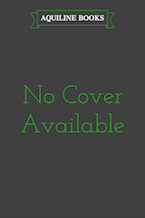Enemies Within: The Cold War and the AIDS Crisis in Literature, Film, and Culture

Jacqueline Foertsch
Read online or download ebook formats.
DOI: https://doi.org/10.12794/sps.enemies-foertsch
OCLC control number: 987380436
Enemies Within traces the discourse of hostility, hysteria, and global threat that links the literature and film of the cold war era with that of the AIDS era. Not only the political and biological illnesses themselves but also the fear and panic they engender are the “plagues” with which Jacqueline Foertsch is concerned in this wide-ranging study.
Forthright and perceptive, Enemies Within presents the literature and film of the cold war and AIDS eras as evidence, manifestation, and symptom of the recurring ills of our post-nuclear time: global threat, buried fears, and a paranoid reaction to the infectious Other. Foertsch argues that our shared experience of and response to AIDS not only significantly resembles but also emerged directly from its midcentury predecessor, which conditioned us to dread worldwide biological disaster and an invisible enemy. She considers the false binaries (straight/gay, patriot/traitor, healthy/infected) that promise protection from an invasive threat and the utopian impulse to purge, homogenize, and relocate individuals outside the city walls.
Tracking the coded language of illness and cure, Foertsch unravels the plague imagery of such texts as George Orwell’s 1984, Thomas Pynchon’s Gravity’s Rainbow, Margaret Atwood’s The Handmaid’s Tale, Ray Bradbury’s Fahrenheit 451, Paul Auster’s In the Country of Last Things, Don DeLillo’s White Noise, and Paul Monette’s Borrowed Time. She also compares cold war-era films with their AIDS-era remakes, showing that although the enemy threat changes shape, the plague of human hysteria remains remarkably consistent.
JACQUELINE FOERTSCH is Professor of English at the University of North Texas and the author of six books and numerous articles on American literature, film, and culture, primarily in the post-WWII decades of 1945-1975. She is past recipient of two NEH Summer Stipends, chair of the coordinating committee for UNT’s Postwar Faculty Colloquium, and chair of the Postwar Literature Group for the American Literature Association.
Republication of this book has been made possible in part by a major grant from the National Endowment for the Humanities: Exploring the human endeavor.

